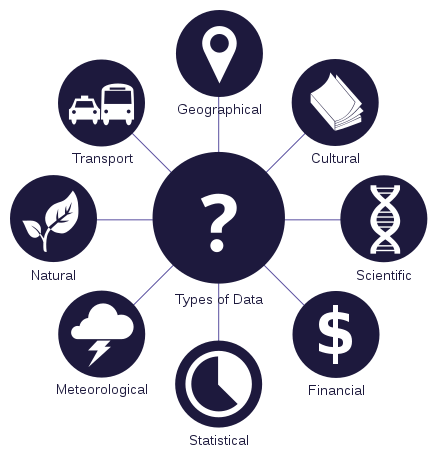
Almost every business recognizes the importance of data. As it is, even the simplest or smallest business uses data in at least some capacity.
Think about some of the most basic business functions — collecting and filing customer information, keeping spreadsheets and logs, operating software, or making use of other management systems. These are all dependent on the ability to gather data!
However, businesses use data in very different ways. The way in which data is utilized plays an enormous role in how your business operates and what you’re able to achieve with data in hand.
Understanding Data Models
Three terms — data-informed, data-driven, and data-centric — are often used interchangeably. Perhaps you’ve heard or seen them floating around, and can’t really decipher one from another!
However, each of these approaches differs, and it’s important for businesses to know what these differences are.
Calling your business data-centric when you’re really data-driven, or calling your business data-driven when you’re really data-informed sends the wrong message to your staff, customers, and other stakeholders.
The data model you choose to employ should depend on a number of factors, such as the size of your business, the industry you’re in, your personnel, and the resources that are available to you.
Let’s take a look at each of these models, so that you can understand how to best identify your business and determine whether you might want to tweak your approach!
Level 1: The Data-Informed Business
There are plenty of businesses that already employ the data-informed model. Like any business, data-informed businesses collect and store information, essentially keeping records that can be accessed if needed.
The truth is that your business can be data-informed and still be highly efficient! We all know that the process of collecting data and maintaining tidy systems is a challenge in and of itself. Employees need to be properly trained and disciplined in how to collect information, store it appropriately, and recall it quickly and accurately.
At higher levels of management, key stakeholders are aware of data and use it to check their decisions. This is about where the role of data in a data-informed business ends, however.
Typically, data-informed businesses don’t manage “big data” to quite the same degree that other businesses might, and don’t allow data to drive the majority of their business decisions, relying largely on instinct and experience instead.
Level 2: The Data-Driven Business
As its name suggests, a data-driven business collects data and relies heavily on it — rather than human intuition — to drive company decisions.
Generally speaking, businesses that adopt a data-driven approach see favorable results. According to one survey, data-driven organizations are three-times more likely to report improvements in decision-making.
The approach does, however, require businesses to get a better handle on big data.
This is where data science starts to become incredibly vital to a data-driven business. It allows them to develop programs and software that help process and filter through data more effectively.
With these systems in place, your business may be able to leverage big data in a powerful way. According to one study, businesses that were able to analyze big data reported an 8% increase in revenue and a 10% reduction in cost, on average.
Level 3: The Data-Centric Business
Finally, we have the data-centric business. This is the approach that the data-informed and data-driven businesses would refer to as “following data blindly.”
Unlike the data-informed and data-driven models, the data-centric model puts data first — to the point where data gets permanent residency in an organization, while even applications come and go.
Many businesses don’t want to scrap or rewrite important applications and programs as a result of data, instead opting to modify them the best that they can. However, this is more in line with the data-driven approach than it is the data-centric approach.
Ideally, the data-centric business has a comfortable handle on big data processing; so, this model also has much less to do with the volume of data collected, and much more to do with prioritizing intelligence with a data-centric focus.
In other words, data is just a vehicle. How does your business pull actual value from data?
What Data Model Should Your Business Use?
Think about your approach to decision making in general. Would you prefer to trust your own instincts, or would you prefer to rely on real, valuable data to drive your company’s decisions?
If you have a small business, perhaps you don’t have the personnel or the resources to make the data-centric model a reality.
If you’re a medium or large business, on the other hand, perhaps it’s time to upgrade your data-informed approach to something more advanced and reliable.